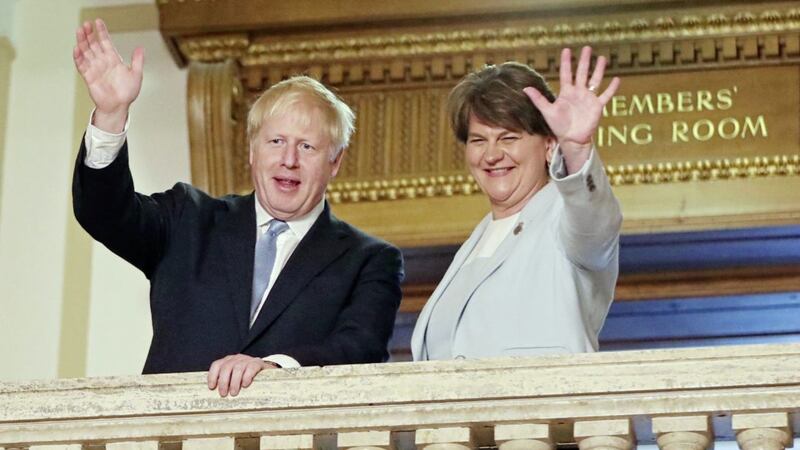It is difficult to defend a hereditary monarchy, but when you look at who the British elect as their heads of government – Blair, Brown, Cameron, May, Johnson - the case for the queen is made.
Although Britain’s unwritten constitution gives her enormous powers, in reality she has only three rights. According to Victorian journalist Walter Bagehot the monarch has “the right to be consulted, the right to encourage, the right to warn”.
In the main, these rights are exercised behind closed doors at the weekly audience with the prime minister. Surprisingly we know little about what happens at these meetings.
The playwright Peter Morgan made theatre out of the encounters, with the queen played by Helen Mirren, and occasionally a PM will let something slip. David Cameron reported that the queen ‘purred’ when told Scotland had rejected independence in 2014, and Boris Johnson said she told him she did not understand why anyone would want to be prime minister.
Rarely during her reign has she put a foot wrong. You have to go to 1963 for an example of her becoming embroiled – unwittingly – in party politics. At that stage Tory leaders ‘emerged’ rather than being elected. Retiring prime minister Harold MacMillan advised her to appoint the little-known peer Lord Home in preference to favourite Rab Butler.
Her ‘neutrality’ was seen then to have been compromised, as a result the Tories changed their way of appointing a leader.
Arcane conventions are normally of interest just to constitutional lawyers and academics. But we live in uncertain times.
The British government is led by a man with no popular mandate. He leads an administration sustained by a minor regional party, and he seems determined to leave the European Union without a deal, in defiance of the will of Parliament.
His Cabinet is made up of third-rate politicians pretending to be second rate.
Desperate times call for desperate measures. Where is Guy Fawkes when you need him?
It is in this context that the cerebral journalist (surely a contradiction in terms) Fintan O’Toole suggested Sinn Féin MPs step aside, lending their mandate to people prepared to vote against Brexit.
Unsurprisingly Sinn Féin has dismissed O’Toole’s seductive suggestion, and with some justification.
Whatever the collateral damage to the Irish economy (north and south) from a no-deal Brexit, parachuting in seven new Irish MPs to block it might undermine the cause he espouses in the long term.
It would be an enormous distraction. As Sinn Féin points out, Parliament can stop this madness without the intervention of its MPs. The votes are there to do so - if there is a willingness across the chamber to put country before party. There are certainly MPs who are willing to do so.
The recess has given Johnson’s opponents time to plan their line of attack when Parliament resumes in September.
And this is where the queen might well be played. If Johnson loses a confidence vote there is a 14-day cooling off period before an election can be called.
If a unity candidate can be found in that time, someone who demonstrably commands a majority in parliament, a reluctant monarch would be obliged ask Johnson to step down in favour of a new administration.
This single-issue government could either revoke Article 50, or vote to extend the Brexit deadline, before calling a fresh election. It should also legislate for a confirmatory referendum.
Frustratingly, throughout this period the interests of Northern Ireland will be represented by the DUP. It is acting in defiance of the expressed wishes of the electorate here to remain in the EU.
Between now and the election is the time for Sinn Féin to be bold, to review its policy of abstention and to ask its electorate for a mandate to use whatever influence it has at Westminster in the interests of the people of Ireland.
It is surely wrong for Ireland’s fate to depend on the DUP and little Englanders.









